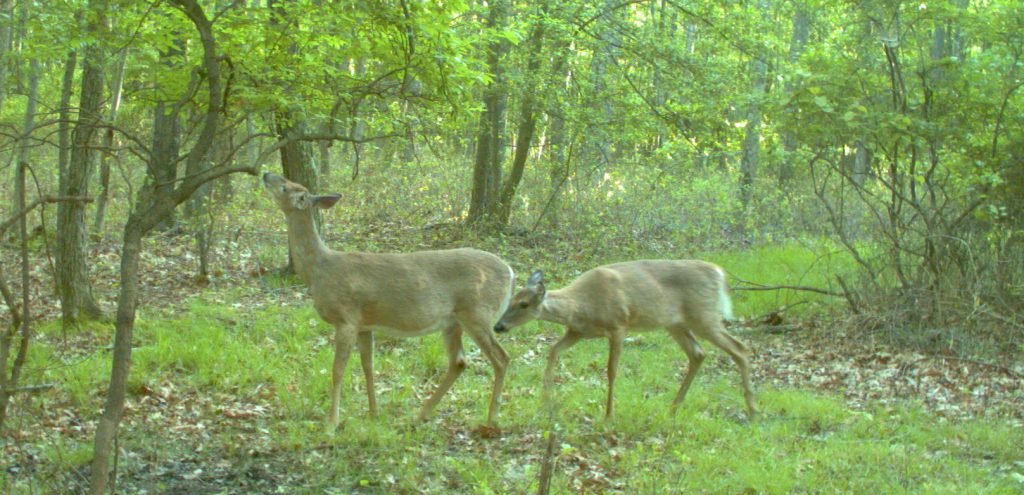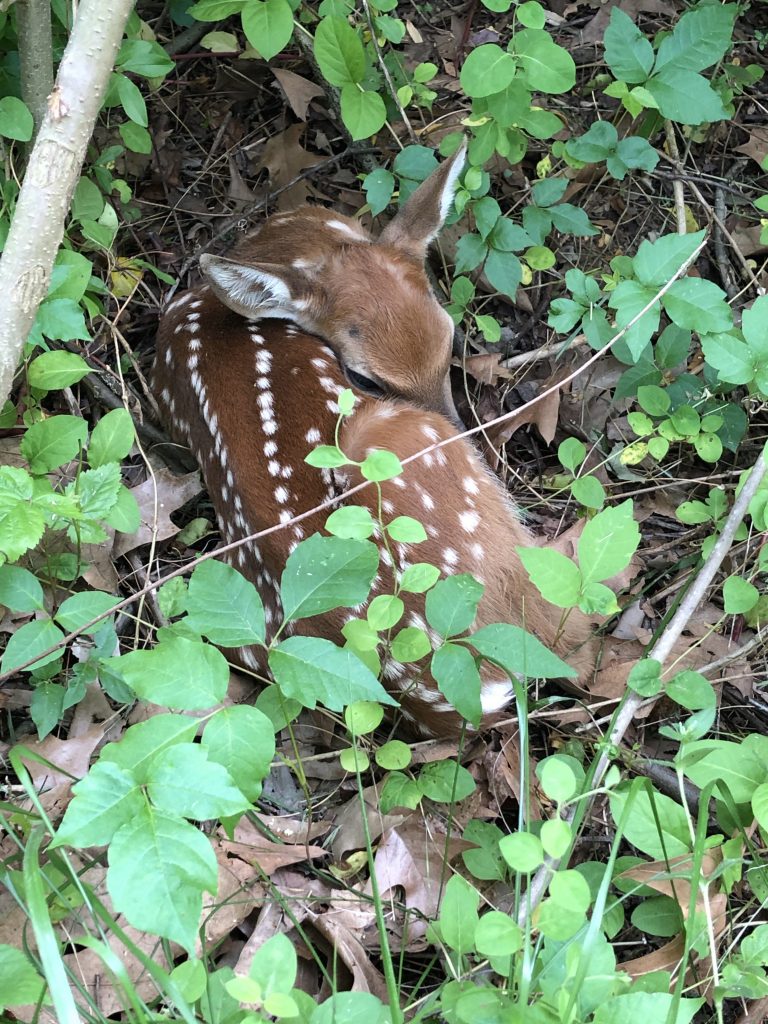Anyone who has attended a baby shower of a first-time mother knows that things can be a bit…over the top. Gift registries with carefully researched and selected items; “wish, hope, and dream” cards; onesie decorating stations; baby bingo – You’ve heard of bridezilla. Well, the quest for perfection in planning isn’t limited to brides and weddings. The prospect of shaping a new life from scratch seems to overwhelm the brain.
You might also be familiar with the second-time-around mother – aka, Momchalant. Wise beyond those 9 months, she knows that nothing goes as planned. And more amazingly, the world doesn’t end as a result. She knows that a baby is unimpressed with a carefully curated nursery theme. And, as long as you don’t drop him or her, nothing else is a big deal either. The difference between Momzilla and Momchalant is striking.
Deer seem to have this affliction as well. The majority of does breed for the first time as yearlings and give birth as 2 year olds. In Pennsylvania, only 26% of fawns (6 months old) breed, although it varies greatly among management units. Thus, Momzillas are overwhelmingly 2 years old. Decades of research on maternal investment and fawn rearing success has shown us that these first-time mothers are less successful at getting junior to kindergarten than older, more experienced mothers.
There are likely several contributing factors for Momchalant’s superior baby-raising skills. First and foremost is experience. We all know that mom is the decision maker. When asking dad for permission, his answer usually is ‘what did your mother say.’ Does control fawn bedsite habitat, movement patterns, social relationships, and predator evasive tactics. Fawns born to older does tend to survive longer and that’s in no small part to her ability to protect and defend them. New moms have none of this worldly experience and are at a disadvantage.
Momchalants also like to throw their weight around. Natal weight is related to maternal age. Older mothers produce larger fawns than first-time mothers. Bigger babies have a leg up when it comes to disease, starvation, and predation. And when you’re brand new in the world, this edge may tip the scale in your favor.
The good news is Momzillas quickly transition to Momchalants. And they are good at what they do for their whole life. Because successfully raising babies becomes their full-time job. One study showed the lowest pregnancy rates (87.5%) and fetus counts (1.3) for yearling does. Compare that to does 2.5-15.5 years old with more than 96% pregnancy rates and 1.8 fetuses/doe. In fact, pregnancy rates for 8.5-15.5 year-olds was 98.5%!
No misplaced binky or knockoff baby wipes ruffles their feathers. They know it’s just a baby and as long as they feed them and chase away the bad guys, everything will be just fine.
-Jeannine Fleegle
Wildlife Biologist
PGC Deer and Elk Section

